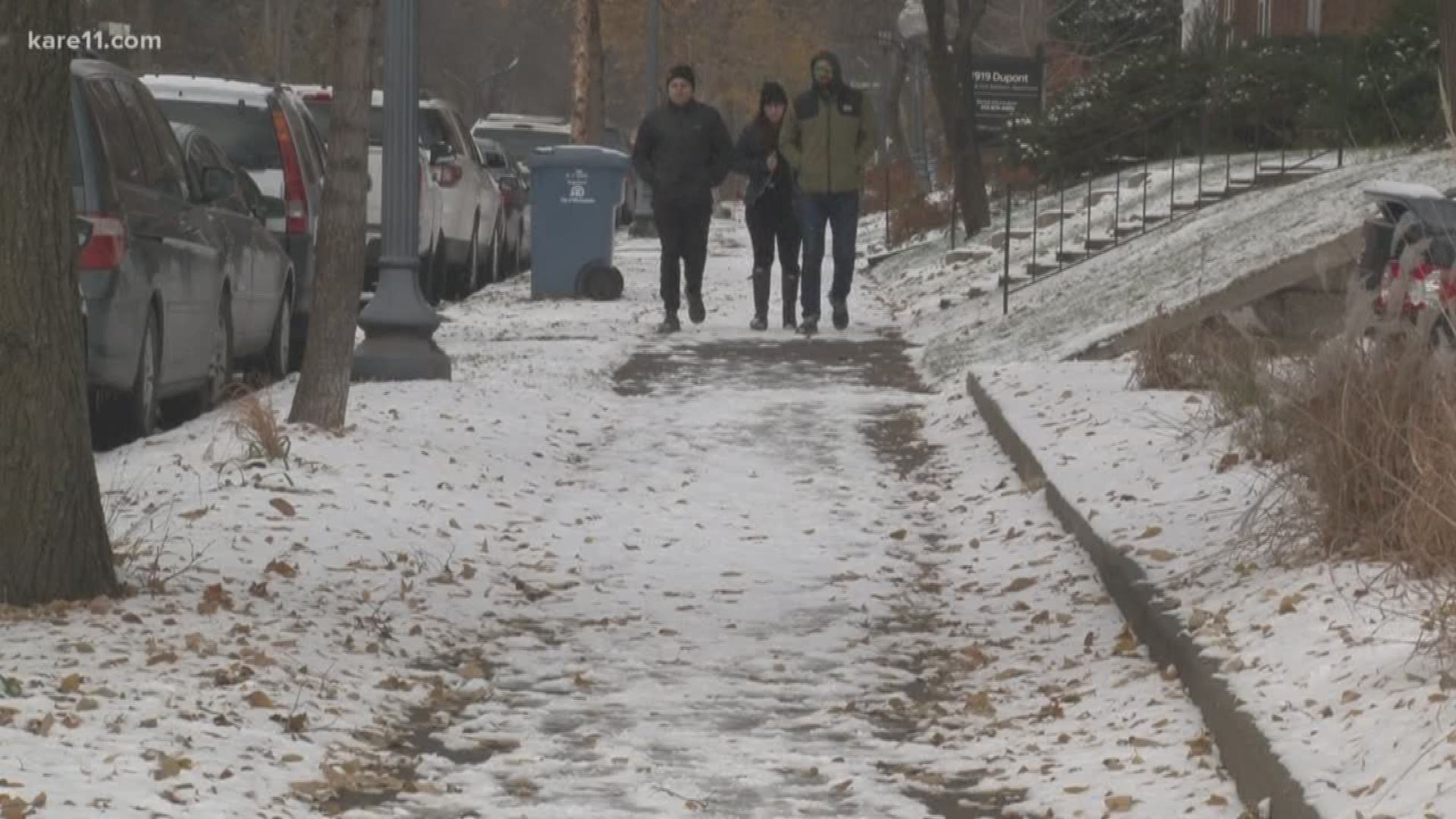MINNEAPOLIS -- The City of Minneapolis will take a more proactive approach this winter to finding unshoveled sidewalks. They're going to hunt for them.
City ordinance requires property owners to clear the snow within 24 hours of the time the snow stops falling. But every winter people who rely on the city's vast network of sidewalks encounter snow and ice in their paths.
"It really creates a quality of life issue for residents and in some cases, it creates a real threat to people’s safety, or a barrier for them to even get around at all," Minneapolis City Council Member Andrew Johnson told KARE
"If you’re able bodied you can get around the snow if there’s some snow in the way, and you’ll probably be okay, but for a lot of residents out there it only takes one person not shoveling and a block suddenly becomes impassable."
In the past the people at City Hall have relied on neighbors to call 3-1-1 to report unshoveled sidewalks. That system is still in use, and residents are encourage to do that.
That begins a letter-writing process that can end with the City hiring a contractor to remove the snow, and then billing the homeowner. In the recent past the average charge for those contractor cleanups has been $150.
For the winter of 2018-2019 the city will also send inspectors out, in search of problem areas.
"These inspectors are going to be looking at each block and seeing which homes don't shovel, and making sure they let people know right away, 'Hey! You gotta keep up with this! This is your responsibility'!" Johnson explained.
He said the City should enforce clearing sidewalks as aggressively as it does plowing streets, by ticketing and towing vehicles.
"Of course, we’re going to have support systems in place for seniors, and those with physical limitations."
Some say the City should just take over the chore of shoveling sidewalks and plow them like streets. But it wouldn't be cheap, considering Minneapolis has nearly 2,000 miles of sidewalks.
One estimate put the price tag at $20 million per year for all snow, and less than that if the sidewalk plowing was limited to major snow events.
"Before we even seriously consider the idea, we've got to step up and proactively enforce existing regulations today around it," Johnson said.

